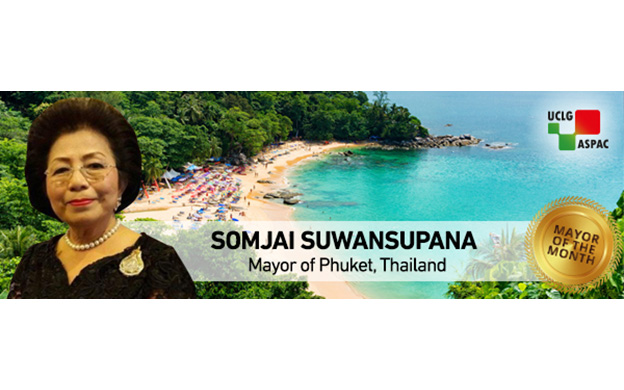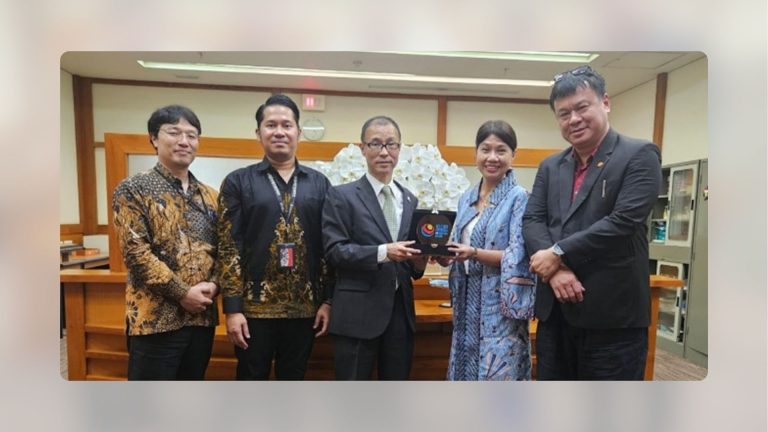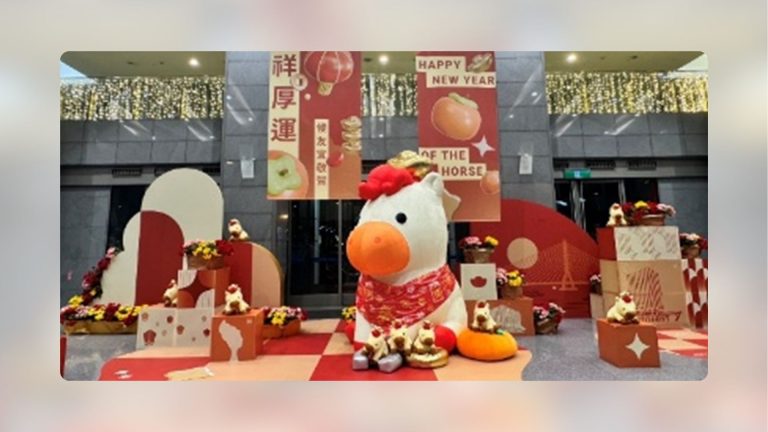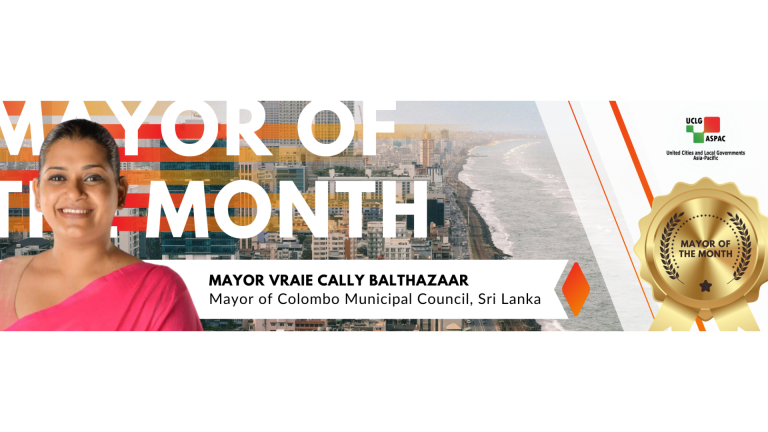The island of Phuket has become a popular destination among fellow travellers and backpackers throughout the past decade. It caters to various types of tourists with pearly white beaches, rich cultural heritage, underwater wonders, and mouth-watering food. Behind all these, however, Phuket, like other cities, is also facing challenges, particularly related to its growing population. Mayor Somjai Suwansupana, leading Phuket Municipality for three consecutive terms, has expressed her support to the development of city and local people through her leadership.
Support Public Facilities Enhancement
Mayor Somjai realised that half of Phuket population are commuters who enter and exit the municipality every day. “When you count the number of people that commute to and from Phuket [city municipality] every day, the actual number of our population is double. No less than 30,000 students living in Kathu, Thalang and Chalong, study in Phuket [city municipality] during the day, and about the same number of workers too,” she stated. Fully realising this, Mayor Somjai expressed her strong support to the proposal of light-rail system route connecting the airport (on the island’s north) to Chalong (in the south).
Development of this new infrastructure will enable commuters to bypass the new Central Business District area. Given her strong popularity, Mayor Somjai does not show worry on the resistance. “And it is these Phuket people – those who have studied, worked and lived here for generations – who deserve priority in terms of infrastructure, especially public transport,” the mayor explains. Adding to that, she noted “Eventually, mass transit will extend to every part of the island and everyone will benefit,” she said.
Reducing Social Disparity and Filling in Education Gap
Under the leadership of Mayor Somjai, Phuket Municipality pushes forward an agenda to enable primary school students to apply their knowledge to the real world by establishing Life-long Learning Centre and Creativity and Innovative Centre. Established from revitalised communities’ libraries and state-operated Thailand Knowledge Park, those two centres are built to shape a learning society that thrives through reading, creative thinking, and lifelong pursuit of knowledge, especially among the young generation. Facilities in these sites include comfortable sitting area, large-screen home theatre, and computer-based learning facilities that provide knowledge and information technology workshops as well as recreational activities for families and all ages. Through this initiative, Mayor Somjai addresses social disparity in Phuket and provides more access to knowledge, particularly for the less-fortunate.
Challenges and Way Forward
Mayor Somjai openly acknowledges that waste management is a key challenge faced by her municipality. Located at the end of the river or waterway from all over the Island, Phuket Municipality faces challenges as all of the island’s waste and garbage (both from the locals and tourists) pile up in the municipality’s landfill and wastewater treatment facility. As Phuket’s touristic popularity grows, the waste will exponentially accumulate if not handled wisely.
Addressing this, Mayor Somjai proposes two plans: 1) to improve and increase the practice of sorting to boost the effectiveness of landfills; and 2) to reduce the rate of annual waste increase to 5 percent (from 7 percent). “We need to start by changing the attitudes of the people, otherwise the increase in garbage will easily jump from 7 to 9 or 10 percent per year, not drop to 5 percent as aimed,” she strongly stated. She highlights the importance of education to create behavioural change in regards to waste management. Thus, the municipality has established a learning centre on site at the landfill, with learning stations focused on organic composting, trash sorting and recycling banks, and the production of organic fertiliser for agriculture, in addition to effective microorganisms’ solution for domestic use.











